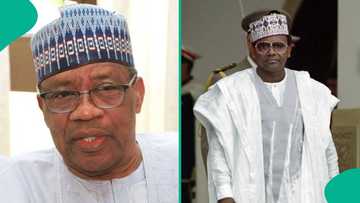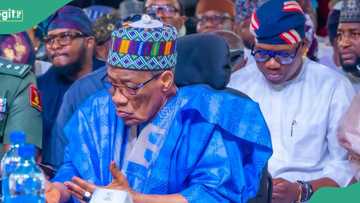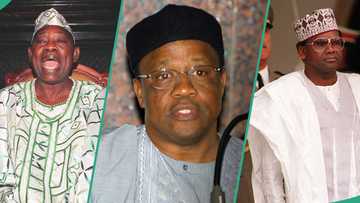IBB Mentions His Main Reason for Overthrowing Buhari in 1985 Even Though He Was His Chief of Staff
- Ibrahim Badamasi Babangida (IBB) revealed in his autobiography, A Journey In Service, that he overthrew Muhammadu Buhari's regime due to dissatisfaction with its policies and leadership styles
- Babangida detailed the draconian decrees and abuse of rights under Buhari, which led to the 1985 coup
- He emphasised that action had to be taken to rebuild the hopes of Nigerians and prevent further division within the armed forces
Former military head of state, Ibrahim Badamasi Babangida (IBB), has disclosed that the Muhammadu Buhari regime was overthrown due to dissatisfaction with its policies and leadership styles.
Babangida, who was Chief of Army Staff under Buhari, revealed this in his autobiography, A Journey In Service, launched in Abuja on February 20.
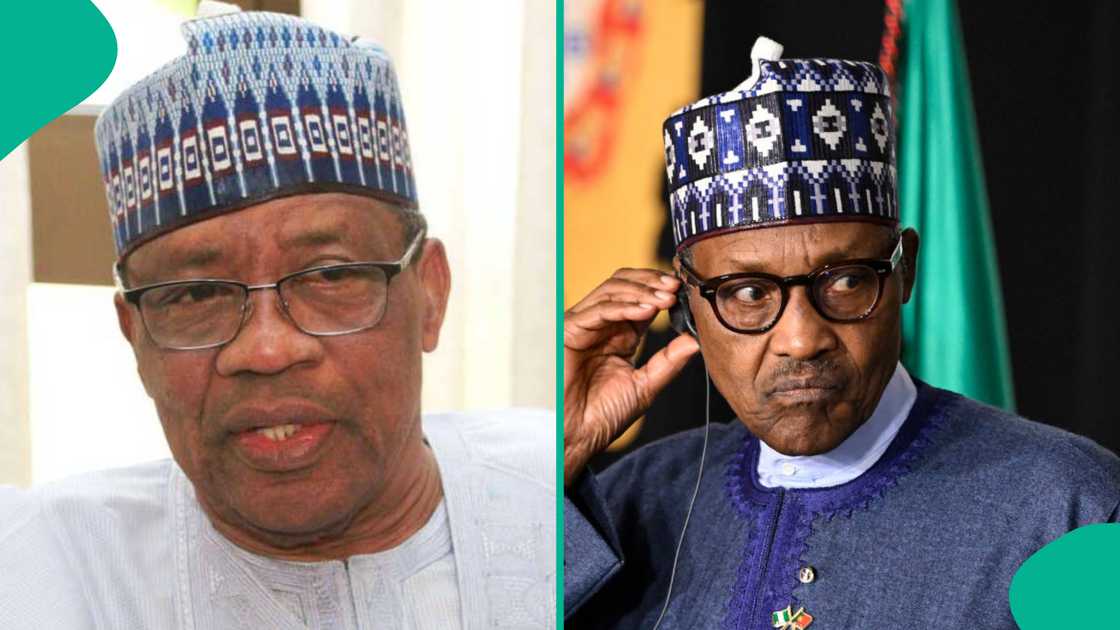
Source: Getty Images
Draconian decrees and abuse of rights
Babangida detailed that the Buhari regime promulgated "draconian" decrees which led to the abuse of fundamental rights and freedoms of citizens.
He believed the policies of Buhari and his deputy, Tunde Idiagbon, were detrimental to the nation’s progress.
"This dissatisfaction eventually led to its ouster in 1985, and he took office as the military President," the book reads.
The 1985 coup
Recalling the events leading to the coup, Babangida said tensions had been building up since the start of the year, necessitating a change in leadership.
He described the coup that brought Buhari into office as a "rescue mission" that had derailed. Babangida claimed that Buhari and Idiagbon's "holier than thou" attitude and draconian decrees caused the nation to become antagonistic towards the military, leading to a precarious atmosphere.
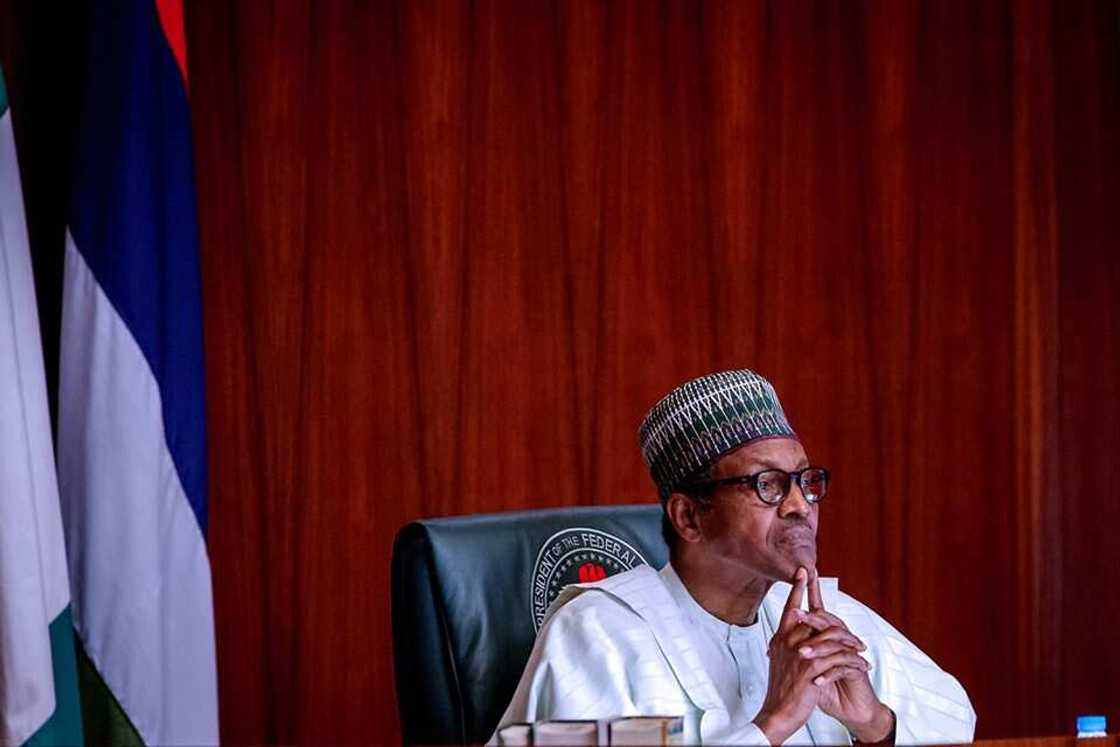
Source: Facebook
His actual words in the book read thus:
“After the military coup that replaced the civilian government of Shehu Shagari with a military regime led by Major General Muhammadu Buhari, Ibrahim Babangida assumed the role of Chief of Army Staff. However, he became increasingly dissatisfied with the Buhari government’s policies and leadership style, which he believed were detrimental to the nation’s progress. This dissatisfaction eventually led to its ouster in 1985, and he took office as the military President,” the book reads.
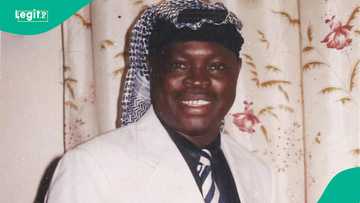
Read also
"Height of heartlessness": MURIC calls out IBB for trying to "rewrite history" in latest memoir
“On that day, it became my lot to step into the saddle of national leadership on behalf of the Nigerian armed forces. The change in leadership had become necessary as a response to the worsening mood of the nation and growing concern about our future as a people. All through the previous day, as we flew from Minna and drove through Lagos towards Bonny Camp, I was deeply reflecting on how we as a nation got to this point and how and why I found myself at this juncture of fate,” IBB said in his book.
“By the beginning of 1985, the citizenry had become apprehensive about the future of our country. The atmosphere was precarious and fraught with ominous signs of clear and present danger. It was clear to the more discerning leadership of the armed forces that our initial rescue mission of 1983 had largely miscarried. We now stood the risk of having the armed forces split down the line because our rescue mission had largely derailed. If the armed forces imploded, the nation would go with it, and the end was just too frightening to contemplate.
“Divisions of opinion within the armed forces had come to replace the unanimity of purpose that informed the December 1983 change of government. In state affairs, the armed forces, as the only remaining institution of national cohesion, were becoming torn into factions; something needed to be done lest we lose the nation itself. My greatest fear was that division of opinion and views within the armed forces could lead to factionalisation in the military. If allowed to continue and gain root, grave dangers lay ahead.”
“Fundamental rights and freedoms were being routinely infringed upon and abused. As a military administration, we were now presiding over a society that was primarily frightened of us,” he said.
“We were supposed to improve their lives and imbue the people with hope for a better future. Instead, we ruled the nation with a series of draconian decrees. An administration intended to reflect the collective will of the armed forces as a national institution came to be seen as the private personal autocracy of a stubborn few.
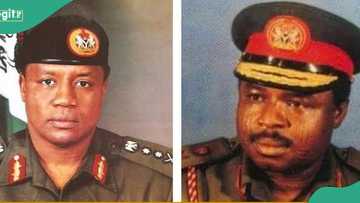
Read also
Falana hits IBB over killing of ex-president's best man, Mamman Vatsa, “The law Babangida used"
“Draconian decrees led to the abuse and severe limitation of basic freedoms as people were clamped into indefinite detention, most times for minor infractions. Punishment for crimes against the state had led to the pursuit of mechanical legalistic justice against the dictates of natural justice. As the Chief of Army Staff, I was under undue pressure from the rank and file to seek ways of reconnecting the government to society lest we lose the nation itself.
“This tense atmosphere culminated in the unanimous decision of a broad spectrum of senior and middle-level officers to change the nation’s leadership. The processes associated with this change were completed without bloodshed by midnight on August 26, 1985.”
"How I married my wife, converted her to Islam": IBB
Legit.ng earlier reported that former Military President Ibrahim Babangida has shared details about how he met and married his late wife, Maryam, in his recently released autobiography, A Journey in Service.
IBB married Maryam, initially named Maria, on 6 September 1969, and they had four children: Aisha, Muhammad, Aminu, and Halima.
PAY ATTENTION: Сheck out news that is picked exactly for YOU ➡️ find the “Recommended for you” block on the home page and enjoy!
Source: Legit.ng


